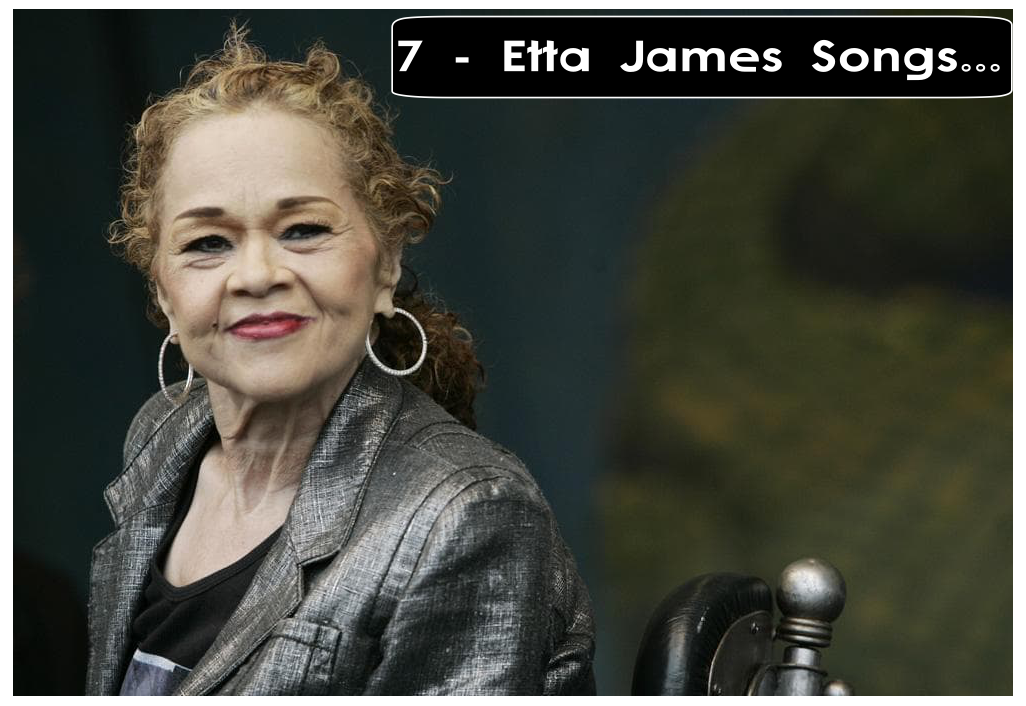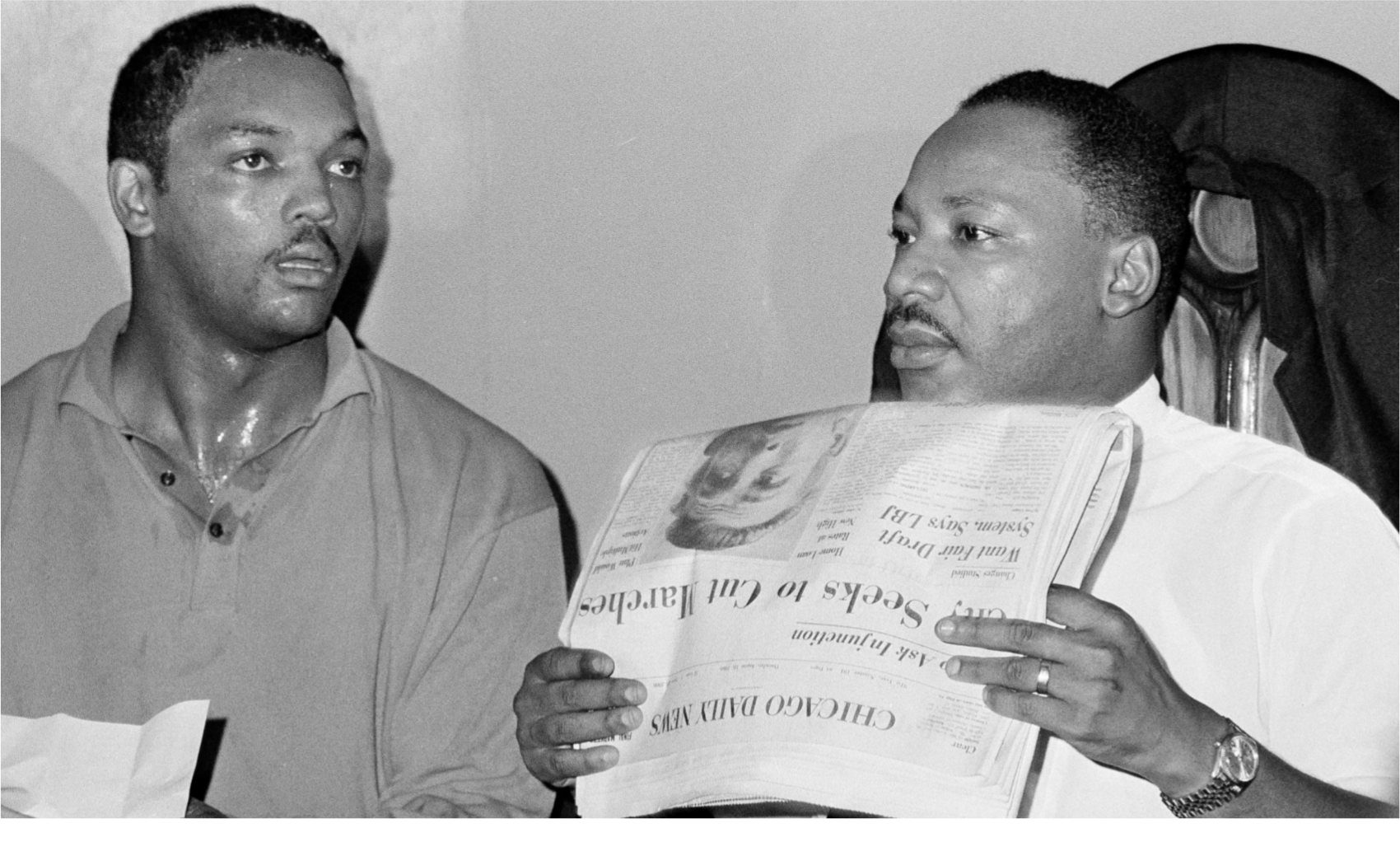(ThyBlackMan.com) There’s something about Etta James that goes beyond voice. It’s spirit. It’s soul. It’s truth wrapped in melody. While most folks immediately think of “At Last” when her name comes up, real music lovers know that Etta’s catalog runs deep—deeper than many ever take the time to explore.
This Black Music Month, there’s no better time to honor the queens who laid the foundation—especially one like Etta, who could croon, growl, and testify all in the same breath. Her lesser-known tracks are rich with life experience, raw emotion, and musical genius that deserves just as much shine as her biggest hits. These seven songs remind us why Etta James wasn’t just a singer—she was a storm, a sermon, a soundtrack for survival.
If you’ve only scratched the surface, now’s the time to dive in and feel what soul music really sounds like—unfiltered, unflinching, unforgettable.

1. “It Ain’t Always What You Do (It’s Who You Let See You Do It)”
Beyond the clever phrasing of the title and the song’s bold delivery, what really stands out is Etta’s vocal tone—firm but not bitter, playful but not unserious. She walks the fine line between schoolteacher and soul siren, doling out hard truths with a smile and a side-eye. She isn’t here to wallow in heartbreak or call out a particular man; she’s here to put everybody on notice. It’s a rare example of a song that educates without preaching, entertains without sugarcoating.
Musically, the production is rich with ‘70s textures. The horns blast with Motown precision, while the guitar licks flirt with early funk. You can hear echoes of Sly Stone, but Etta keeps it rooted in her blues-soaked sensibility. The song doesn’t beg to be danced to, but you might find yourself moving anyway—swaying to the groove while reflecting on the people and choices that shape your own narrative. It’s feel-good music for grown folks who’ve been through it, seen a few things, and aren’t afraid to learn from the past.
One of the most compelling aspects of this track is how deeply it speaks to image versus reality—a topic that still resonates loudly in the social media age. While Instagram and TikTok weren’t even a thought when Etta recorded this song, her message hits the same nerve we feel today: perception can often override intent. “It Ain’t Always What You Do” becomes a timeless cautionary tale about keeping your moves tight and your business private. And Etta, with her commanding voice, is the ideal messenger.
Revisiting this track during Black Music Month is especially powerful. It highlights a side of Etta James that doesn’t often get credit: the philosopher, the storyteller, the sharp-tongued oracle who used rhythm and rhyme to slip life lessons into our ears. In many ways, this song feels like a precursor to the work of modern truth-tellers in R&B and hip-hop—a reminder that Black women have long used music not just to feel, but to warn, witness, and wake us up.
2. “Take It to the Limit”
Yes, that’s right—Etta James covered The Eagles. But don’t let the origin story fool you: her version of “Take It to the Limit” is a revelation. Gone is the country-rock melancholy of the original. In its place is a version infused with raw gospel passion, soul-inflected delivery, and bluesy gravitas that redefines the song entirely.
The arrangement trades subtle harmonies for piano-driven intensity and orchestral flourishes that elevate the track into a torch song. Etta’s voice—ragged, commanding, emotionally fearless—delivers each line like a testimony. Where Don Henley sang of quiet desperation, James bellows from the depths of a lived-in ache. “You can spend all your time making money / You can spend all your love making time,” hits differently when sung by a woman who had endured addiction, heartbreak, and reinvention.
Midway through the song, she extends her vocal phrasing in a way that feels almost improvisational, allowing her soul to breathe through the cracks. The horns swell, the strings wail slightly, and James holds court like a preacher in a smoky chapel. She turns each lyric into gospel, highlighting the unspoken emotional weight behind the words. Her interpretation doesn’t just shift the tone—it changes the meaning entirely.
Rarely discussed among her signature works, this version showcases how she could transcend genre. It’s not just a lesser-known track—it’s a hidden cornerstone of her genius. It reminds us that Etta James didn’t need a microphone to echo power—her very presence filled the room. “Take It to the Limit” becomes, under her command, not a song of resignation, but of resilience—ideal for anyone who has stood at the edge of life’s cliff and chosen to leap rather than fold.
3. “Sugar on the Floor”
Written by Kiki Dee herself and later produced by Elton John, “Sugar on the Floor” is a moody, sultry ballad that Etta James transformed into something aching and cinematic. Her cover strips the song down to its emotional bones, and what’s left is haunting.
There’s a slow burn quality to the way James navigates this track. The arrangement is sparse—a minimalist combination of piano, bass, and atmospheric guitar—giving her voice all the space it needs to drip with longing. She doesn’t race through her lines; she lets each one simmer, building a sense of fragility that borders on collapse. “Sugar on the floor” becomes a metaphor for wasted sweetness, abandoned affection, and quiet devastation.
What’s remarkable is how much control James exerts over her performance while making it feel utterly spontaneous. Her phrasing is intimate—barely above a whisper at times—then suddenly charged with sorrow, like a distant thunderclap. It’s as though she’s remembering a love that fell apart in slow motion, the bitterness still fresh on her tongue. The ache is visceral, and you don’t just hear it—you feel it in your chest.
Listeners today—especially those who appreciate the nuanced balladry of Norah Jones or Lianne La Havas—will find “Sugar on the Floor” timeless. It’s proof that the most powerful heartbreak doesn’t always scream. Sometimes, it simply sighs. Etta makes vulnerability feel brave, and in doing so, offers a ballad that’s both quiet and unforgettable—perfect for the after-midnight hours when all you want is honesty in melody.
4. “Out on the Street Again”
“Out on the Street Again” is pure funk soul. Co-written by Jerry Ragovoy and Mort Shuman, this track finds Etta reclaiming the street-smart persona she wore so well in her blues material but flips the energy into a sassy, electric groove. The brass is blaring, the bass line bounces, and the whole arrangement smacks of 1970s soul revival.
Lyrically, the song is about being kicked to the curb—but make no mistake: Etta isn’t broken. She’s fired up. “This is that once in a lifetime / This is the thrill divine,” she belts with both disbelief and swagger. It’s that contradiction that gives the track its spark. She’s down, maybe, but not defeated. Her voice spits fire, giving the song the flavor of a personal uprising.
The production is tight, with syncopated rhythms, electric keyboard accents, and stabs of horn that push the arrangement forward like a marching band on a mission. But the real magic is in how James marries funk with emotional clarity. She lets you feel every ounce of betrayal and bounce-back energy, turning a moment of rejection into an anthem of self-renewal. The street may be where she lands, but it’s also where she regains her footing.
For modern listeners raised on Beyoncé’s “Lemonade” or the fierce catalog of Lizzo, this song feels both retro and revolutionary. “Out on the Street Again” deserves more love for how it connects personal pain with rhythmic release—and how it proves that soul music can absolutely strut. It reminds us that the streets may knock you down, but if you’ve got soul, you never stay there long.
5. “Waiting for Charlie to Come Home”
Before she became the powerhouse known for gritty soul and blues confessionals, Etta James recorded this lush, heartbreaking number written by Burt Bacharach and Hal David—a songwriting duo more associated with Dionne Warwick than Etta’s rawer style. But “Waiting for Charlie (To Come Home)” proves how adaptable James was, seamlessly blending into orchestral pop while still delivering the deep emotional core that defined her.
The track opens with a gentle, almost cinematic string arrangement, setting a tone of dreamy melancholy. But once Etta enters, the mood shifts. Her voice cuts through the lushness like velvet over steel—controlled, aching, and utterly present. She delivers every line with the weight of longing, painting a picture of a woman stuck in time, waiting for a love that might never return. “Waiting for Charlie to come home / Bring me his lips, his wild hungry arms / And all of the love that I need,” she sings, her voice trembling at the edges.
There’s a haunting stillness to her performance. She doesn’t try to oversell the emotion—she lets the silence between the notes speak just as loudly. Her phrasing is impeccable, stretching syllables just long enough to convey the drag of loneliness, then pulling back in the next line to mirror resignation. The restraint in her delivery amplifies the sadness, making the yearning feel painfully intimate. It’s the sound of a woman too proud to beg, but too in love to walk away.
Musically, it’s a departure from her bluesy roots. This is pure orchestral soul-pop, polished and structured. But even within the clean arrangement, Etta brings grit. She imbues each line with just enough edge to suggest that this isn’t just a sad love song—it’s a woman’s internal struggle between hope and truth. The juxtaposition of her earthy delivery with the lush instrumentation creates a dramatic tension that makes the track unforgettable.
What also makes the song compelling is how timeless the emotion is. While the setting may be the 1960s, the feeling of being left behind by someone you love—of waiting by the phone, the door, the window—is universal and enduring. Whether it’s a text that never comes or a plane that never lands, Etta captures the essence of emotional limbo. That quiet pain, that holding pattern of the heart, is what gives the song its staying power.
In today’s landscape, where vulnerability is celebrated but often filtered, “Waiting for Charlie” stands as a throwback to unfiltered romantic yearning. It’s a song for the overlooked, the ones who still hold onto hope in a world that tells them to move on. Etta didn’t just sing this song—she embodied it. And for listeners who appreciate artists like Adele, Jazmine Sullivan, or even Sam Smith, this track offers a glimpse of the emotional lineage they follow. Sometimes the softest delivery carries the loudest ache—and Etta James mastered that balance here.
It’s not just a song—it’s a memory suspended in music, still waiting on a knock at the door that may never come.
6. “Only Women Bleed”
Originally a hit for Alice Cooper, “Only Women Bleed” might seem like an unusual pick for Etta James. But her cover turns the rock ballad into a devastating soul exposé about domestic violence, sacrifice, and silent suffering. Her interpretation is stripped of the theatrical drama of Cooper’s version and instead drenched in reality.
The orchestration here is lush but never intrusive—violins, piano, and steady drums set a somber tone. James sings with weary authority, channeling the pain of generations of women who have suffered in silence. Lines like “Black eyes all of the time / “Don’t spend a dime”, “Clean up this grime” / And you there, down on your knees / Begging me “Please, come watch me bleed”” hit harder when filtered through Etta’s lived experiences. Her tone is never maudlin—it’s solemn, as if she’s mourning not just one woman’s pain, but centuries of it.
What sets Etta’s version apart is her gift for giving voice to the voiceless. Her vocal performance walks a tightrope between fragility and fury, and by the time she reaches the chorus, there’s a tremor in her tone that signals more than heartbreak—it signals survival. She turns Cooper’s lyrics into a meditation on womanhood itself, acknowledging not only the pain women endure but the unbreakable strength underneath it all.
Her voice does something incredible on this track. It trembles, then hardens, then breaks open again—an emotional arc that mirrors the life of a woman trapped in cycles of abuse. But Etta never portrays the woman as a victim. Instead, she highlights her endurance, her quiet courage. The final note isn’t one of surrender, but of silent resistance—unfolding like a protest in the form of song.
This song is still painfully relevant in today’s world. James’ version elevates it into a soul classic—one that speaks not just to women’s pain but to their resilience. For those unafraid to confront the darker edges of human experience through music, this is a must-listen. It’s not only one of the best hidden gems in her catalog—it’s one of the bravest.
7. “Mistreater”
“Mistreater” is vintage Etta James at her grittiest. It’s a song about betrayal, power dynamics, and emotional manipulation. From the title alone, you know where it’s headed—but it’s how James tells the story that makes it unforgettable.
The instrumentation is raw and pulsing with Southern rock-blues energy. A distorted guitar riff opens the track, followed by a muscular rhythm section that adds urgency to every line. Etta comes in swinging, her voice filled with both rage and resignation. “Mistreater, you’re gonna get yours,” she howls—not as a threat, but as a promise forged in fire. She turns the microphone into a weapon, using every note like a strike against injustice.
Lyrically, the song doesn’t paint Etta as a passive victim. It’s a war cry dressed as a blues cut. She exposes the emotional gaslighting, the spiritual depletion, and the false promises that define toxic relationships—and she does so without apology. Her vocals dig into the pain with gravel and growl, but there’s a sliver of triumph in each note. She’s not just hurt—she’s reclaiming her power in real time.
This song doesn’t beg for sympathy. It demands recognition. Etta isn’t asking to be saved—she’s declaring that she won’t be broken. In an era when songs about relationship toxicity were rare or sugarcoated, “Mistreater” pulls no punches. It’s bold, bitter, and brimming with rebellion. You don’t dance to this song—you throw furniture to it. You scream it in the car after a breakup. You turn it up when you’ve had enough.
Listening today, the track feels especially vital in the context of movements like #MeToo and public reckonings around abuse and justice. It’s blues as therapy, as vindication, and as a warning. For fans of Janis Joplin, Grace Potter, or Brittany Howard, “Mistreater” will feel like finding the source of that raw, rebellious feminine energy. And for everyone else, it’s a brutal, beautiful reminder that even the deepest hurt can be transformed into art that burns and heals all at once.
Etta James left behind more than just music—she left a legacy of honesty, grit, and grace that still speaks to us today. Especially during Black Music Month, it’s important to revisit and uplift the parts of an artist’s work that don’t always make the highlight reel. These seven songs aren’t just hidden gems—they’re part of the story that shaped her and shaped us.
Whether you’re nursing a heartbreak, reclaiming your power, or just vibing with real-deal soul, Etta has something for you. All you have to do is press play and let her tell it. Because when Etta James sings, she doesn’t just fill the room—she fills your spirit.

















Leave a Reply